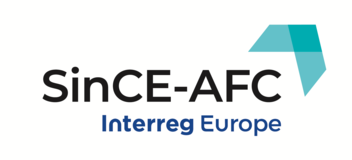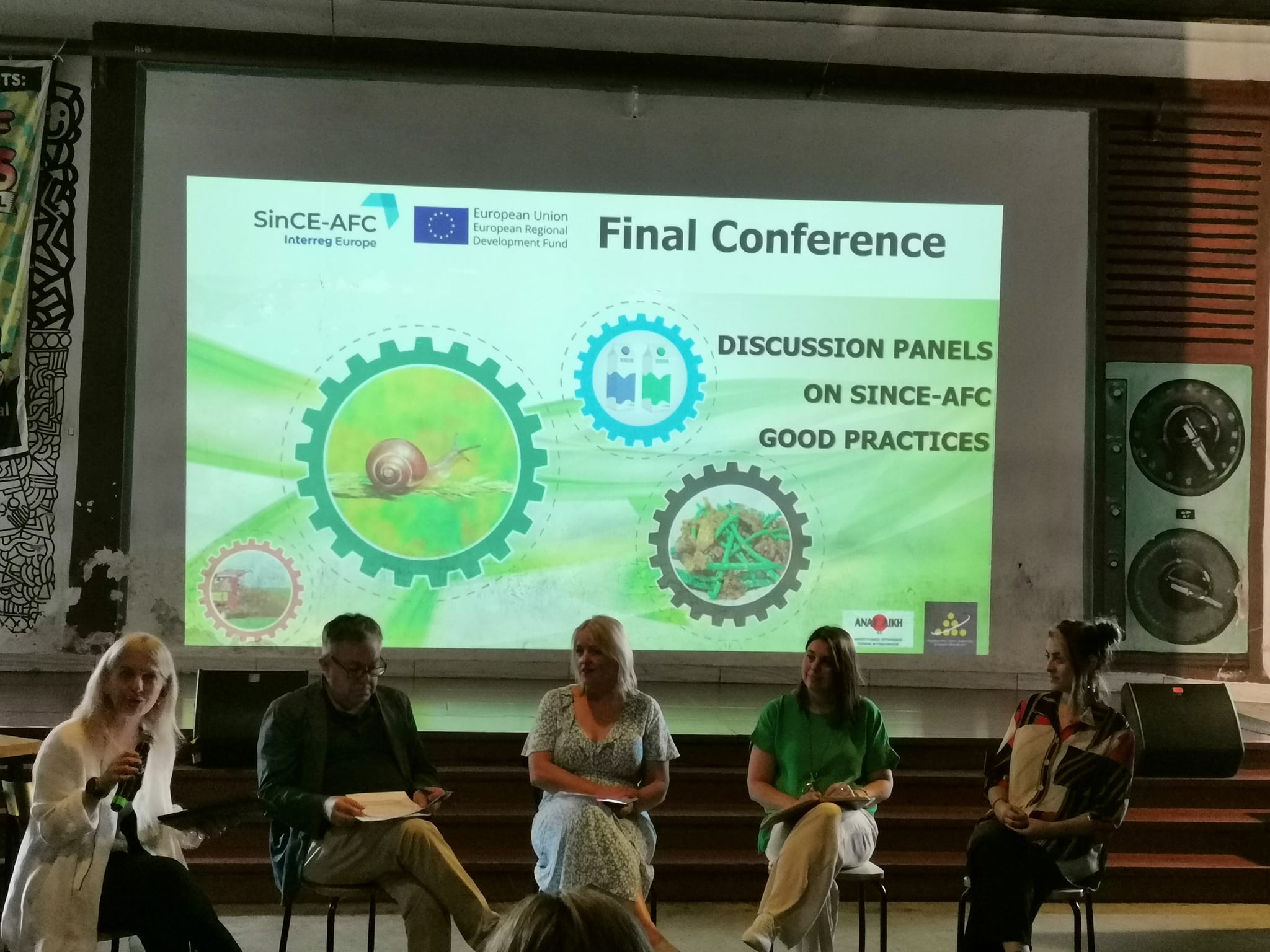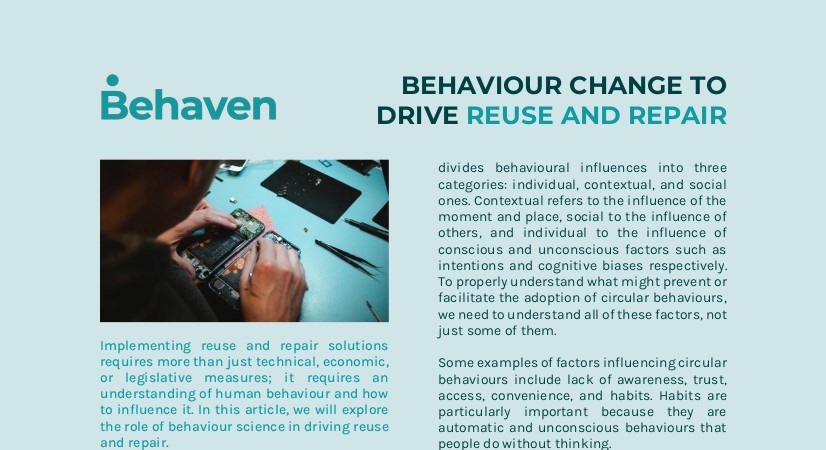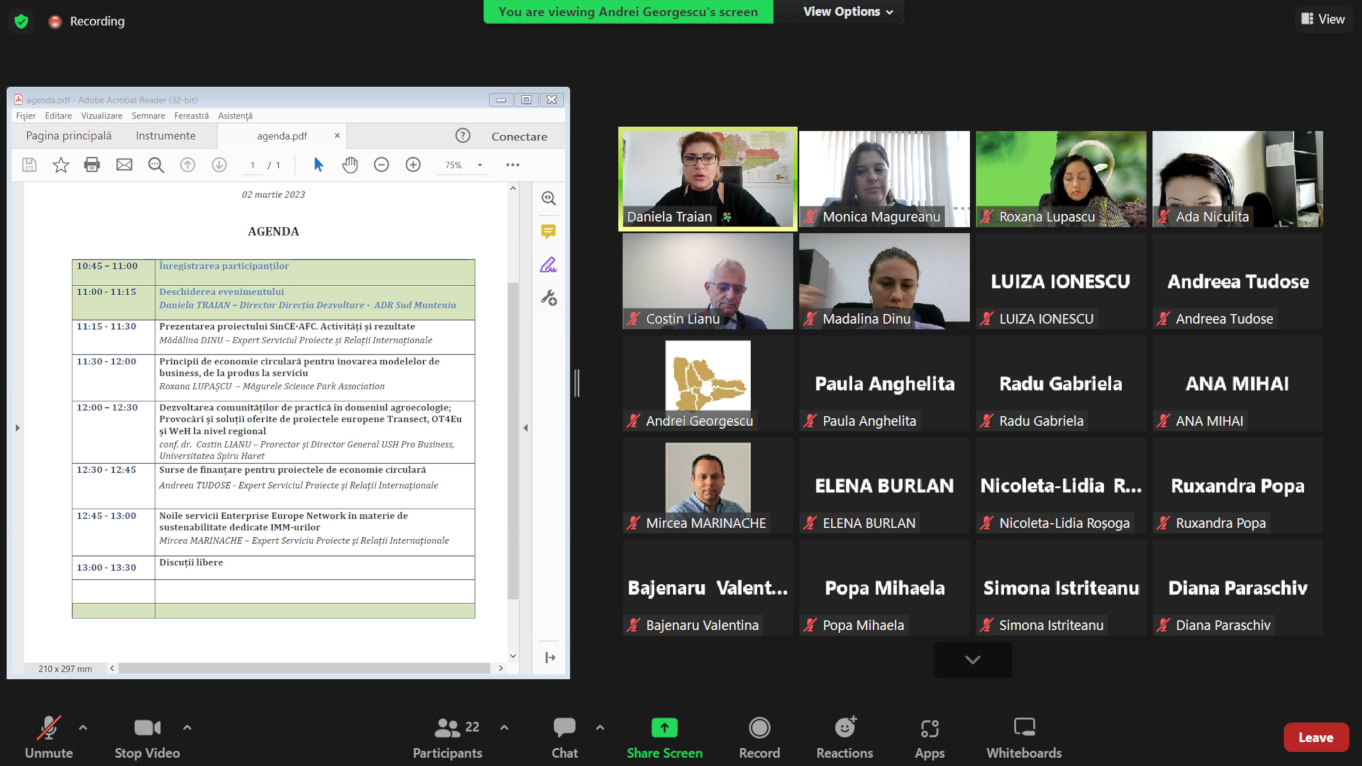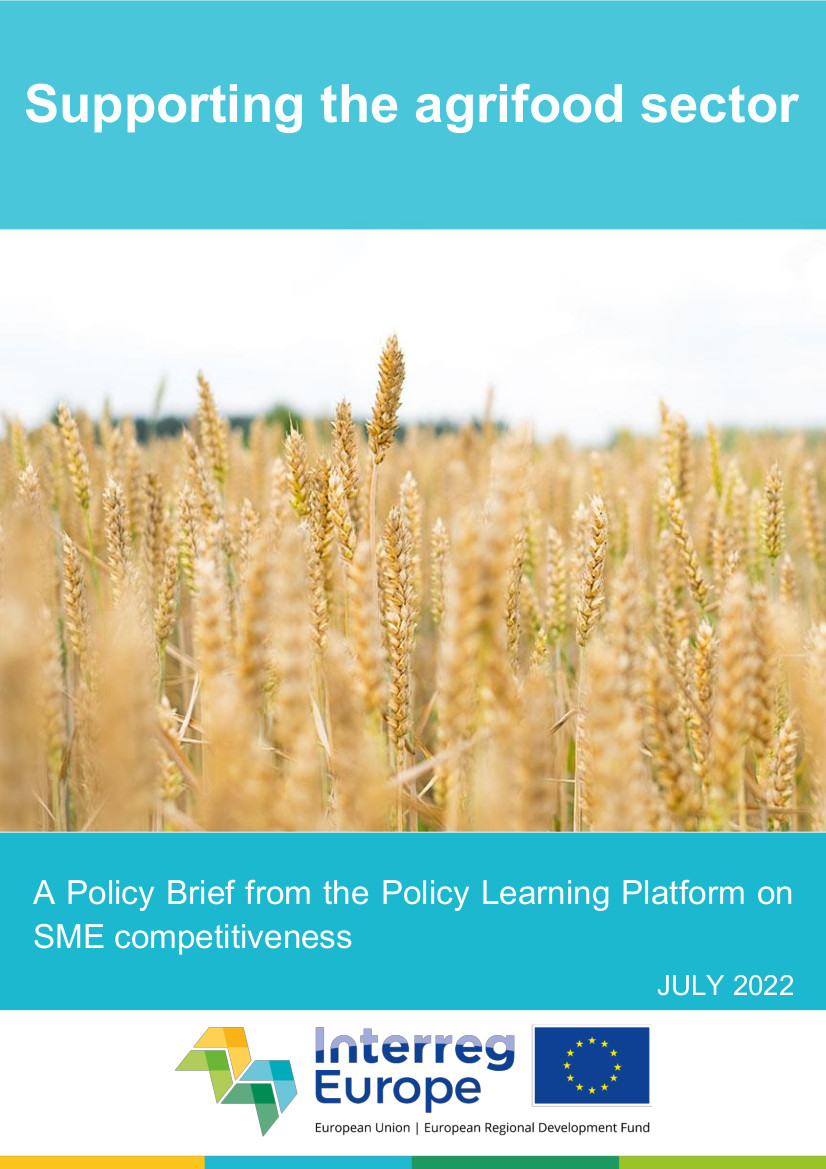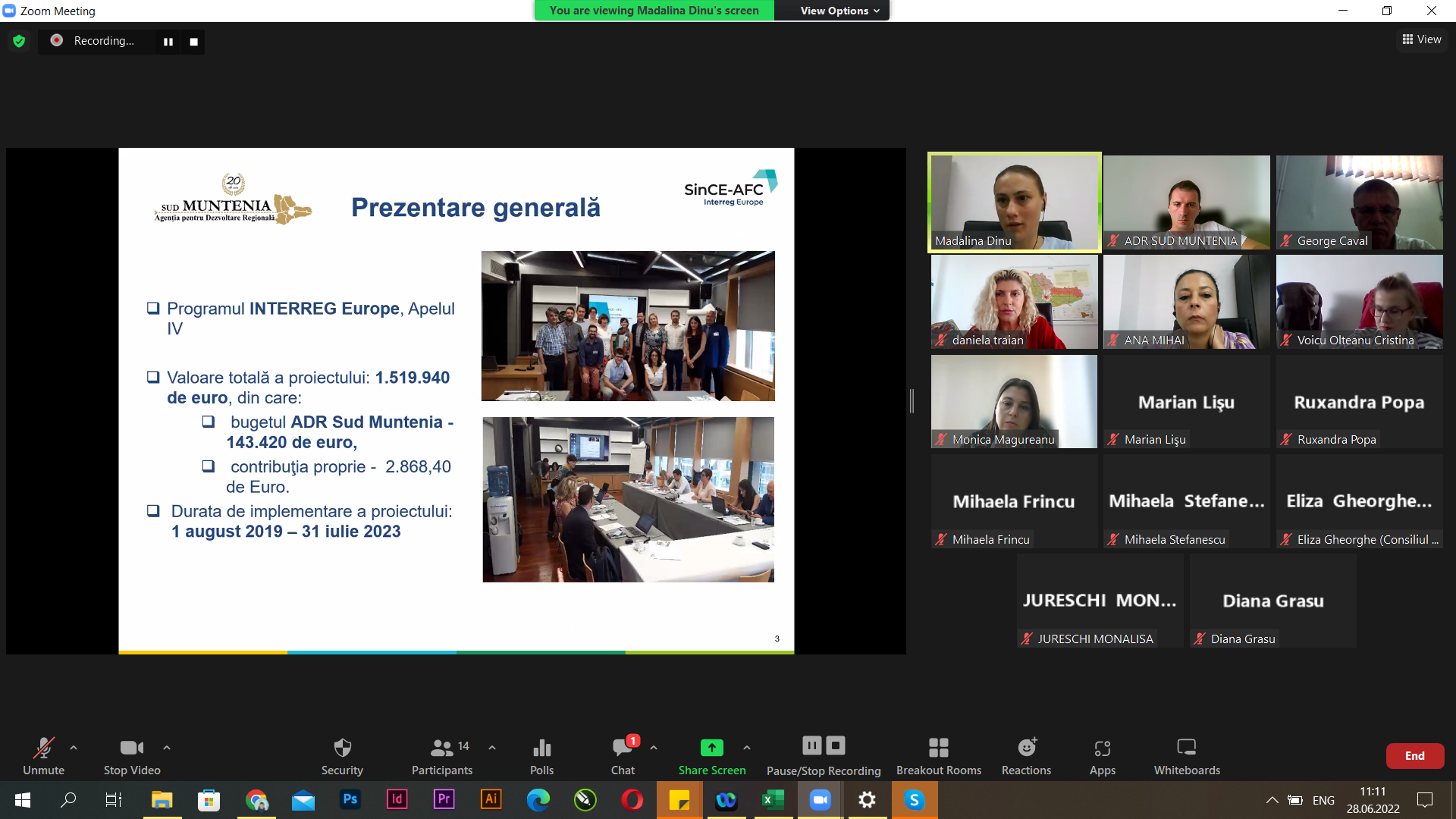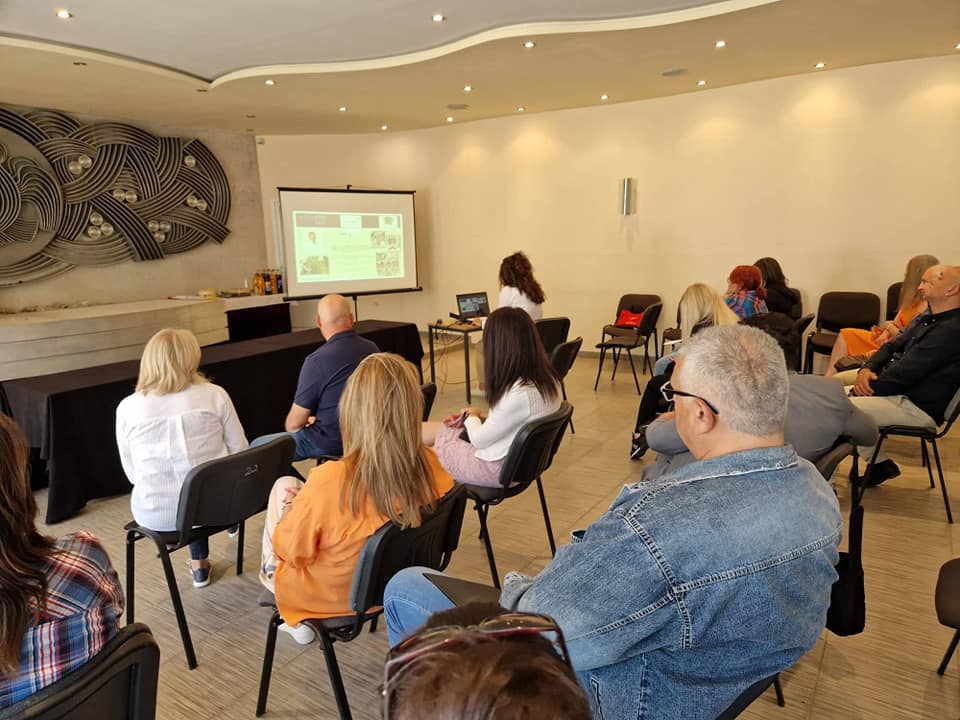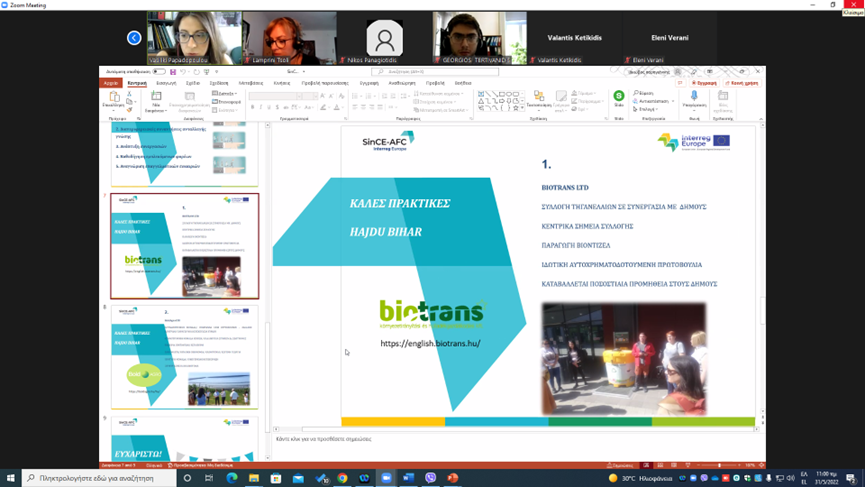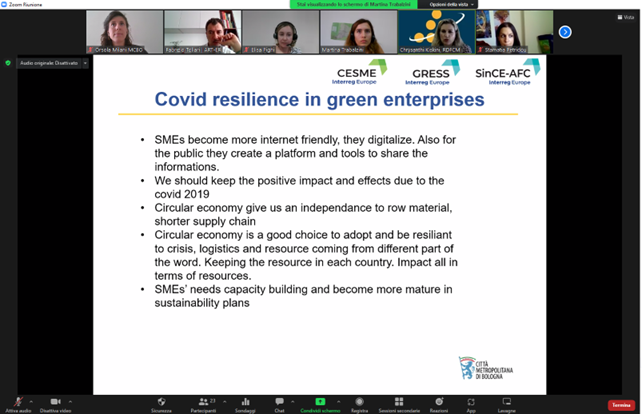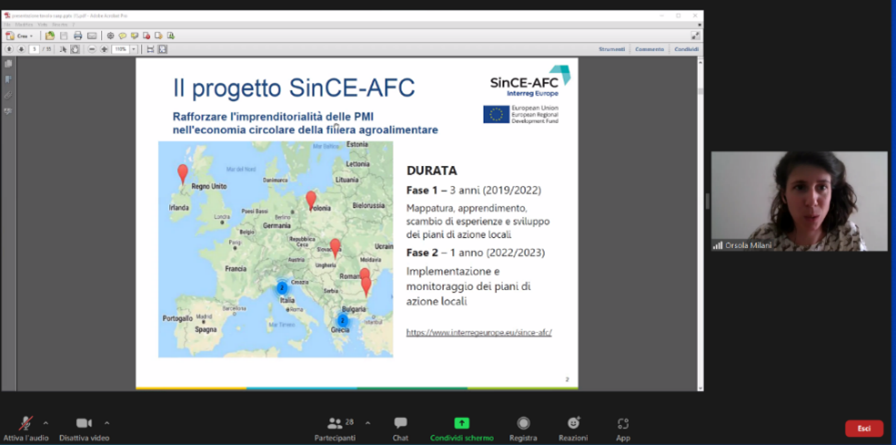The 4th Interregional Project Event and Partners’ Meeting took place online on May 25-26, 2021 organised by the Marshal Office of the Wielkopolska Region. The first day of the two-day event there was the Interregional Exchange Experience Meeting in which all project partners, plus members of local stakeholders groups formed by each partner, representatives of the Marshal Office of the Wielkopolska Region and representatives of the selected SMEs attended.
All guests were welcomed by Mrs. Damiana Nowak, the Director of the Department of Agriculture and Rural Development at Marshal Office of the Wielkopolska Region, then ANATOLIKI SA, as a Lead partner of the project, briefly introduced to the participants the scope and the framework plan of tasks in the project.
Next, during the session, Wielkopolska Region, as organizer, presented the initiatives and strategies at national level and each of the project partners presented one or more Good Practices from their region.
Wielkopolska Region organized a virtual study visit, focusing in SME’s of the Region, which are active in the Agri-food sector and incorporate good practices of circular economy. Within virtual study visit, high-quality films were prepared in which the Biogas Plant in Przybroda and the SemCo company were presented.
The first virtual visit was at the Biogas Plant located in the Agricultural and Fruit Experimental Station in Przybroda, belonging to the University of Life Sciences in Poznan. The innovative biogas plant launched in 2019 is an extremely modern installation, and thanks to the solutions used in it, it is even unique in Europe. This is due to both technical solutions (innovations in construction) and technological solutions (advanced solutions in the fermentation process). The installation is in line with the global trends in the development of the energy sector aimed at technologies using energy storage, renewable energy sources and ensuring universal energy security.
The second virtual visit was in Smilowo, at the SemCo company, a family business founded in 1990 and managed by the 2nd generation of the Just family. They attach great importance to personal contact with their clients and employees. They pay attention to the needs of their clients and they change for them. They pay attention to strengthening regional, sustainable production and maintaining traditional production processes by carefully selecting raw material suppliers and maintaining an efficient machine park.
In addition, using local agricultural raw materials, they care for the environment and try to guarantee minimum transport routes for their raw materials. Their traditional, unrefined, cold-pressed oils delight with taste, aroma and colour.
After the presentation of the companies, at the end of the meeting, there was an interactive Q&A session, a discussion among the participants followed and Mr. Just answered questions from participants. All these two examples of good circular economy practices which promote the production of quality products, minimizing the environmental footprint, were analyzed further.
The main conclusion that emerged from this study visit is that through the adoption of circular economy activities by the agri-food processing company, conditions for activation and awareness of consumers should be created. Also, by managing various types of waste, we can contribute to the reduction of emissions or gases that arise during agricultural and food production.
During the second day project management issues, future tasks and first drafts of Action Plans were discussed. The participants were divided into smaller groups to discuss good practices, their interest in specific examples and the possibilities of their implementation. The second group discussed the activities planned to be implemented under the Action Plans which are being prepared now, and the third one discussed other ideas and further steps in finding and identifying good practices among partners.

